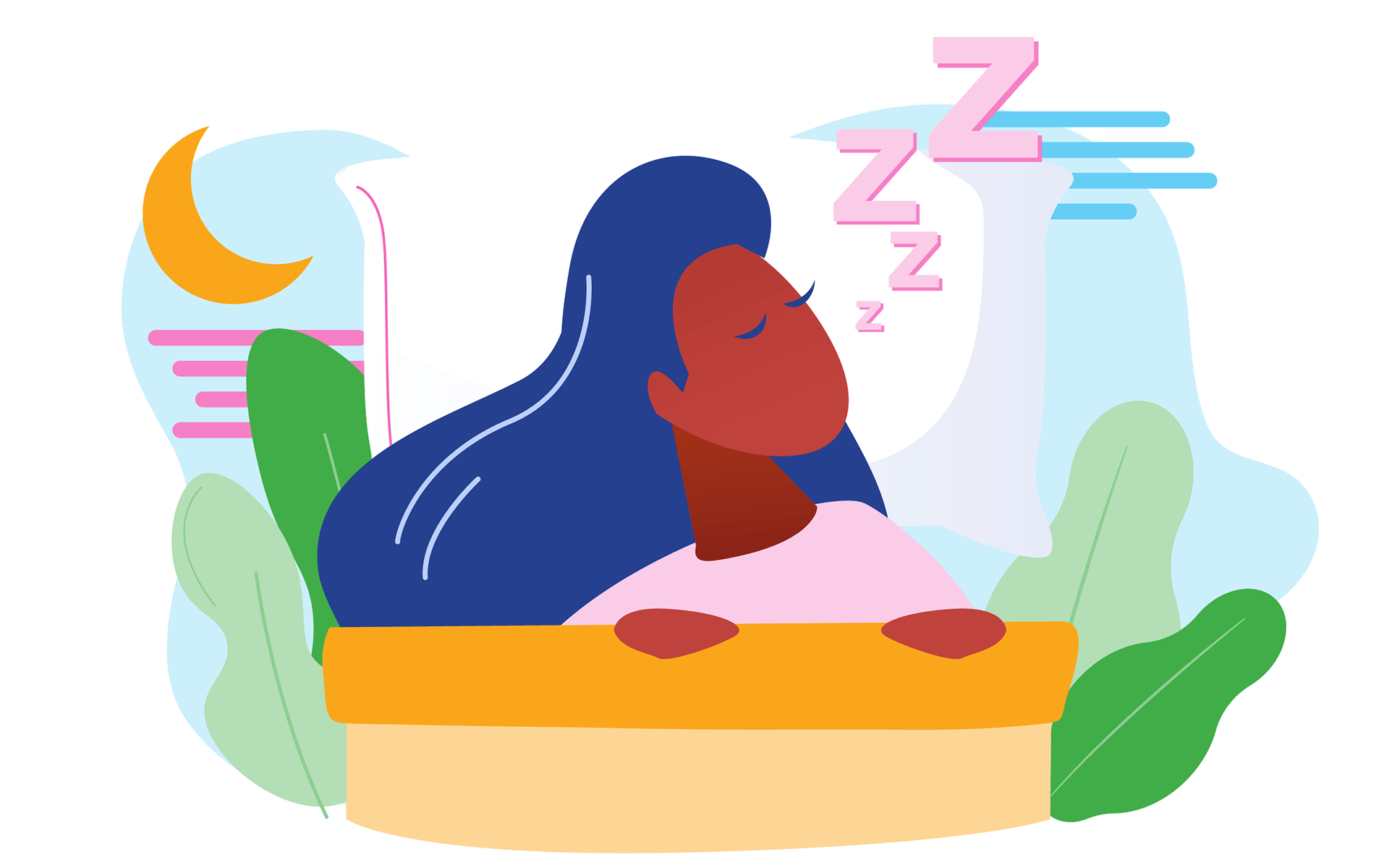We may have outgrown our fear of monsters hiding under the bed, but nighttime anxiety continues to keep many of us awake long past lights out. According to the American Psychological Association, 43 percent of Americans say stress has caused them to lie awake at night at least once a month. So is there a way we calm our anxious minds, and get to sleep more quickly?
That’s a question Jared Minkel, assistant professor and director of the adult behavioral sleep medicine program at Brown University, answers in this video from Happify.
“One of the most common difficulties with getting to sleep is people just can’t turn their minds off,” Minkel says. “You might be tired and sluggish all day, but you lay down in bed and all of a sudden your mind just starts going and won’t stop.”
If that sounds familiar, here are four ways you can quiet the mind and sleep soundly:
Four Ways to Soothe Nighttime Anxiety
1. Encourage positive distractions
Focusing all your attention on how you can’t get to sleep will only make sleep more difficult. Instead, Minkel recommends distracting yourself with “interesting and engaging imagery,” involving as many as your senses as possible.
For example, close your eyes and picture a nice beach—can you hear the crashing of waves? Feel the sun on your skin? Taste the salt from the sea?
“These kinds of images can then transfer into dream content, so keep it pleasant and positive,” Minkel says.
2. Allow worrisome thoughts
If you’re unable to sleep because you’re fixated on something stressful that’s happening the next day—like a big presentation at work, or a confrontation with a family member—it’s common to want to push those thoughts from your mind. However, doing so may hurt more than it helps.
“Not only will you start to think about these things again, now your arousal will be higher, too,” Minkel says.
Rather than trying not to think about what’s worrying you, he recommends considering what comes after the big event. Remembering the mundane tasks that follow something stressful—like cleaning up your meeting space after the presentation, or going grocery shopping after you’ve seen family—can help you recognize that the panic will pass.
Remembering the mundane tasks that follow something stressful—like cleaning up your meeting space after the presentation, or going grocery shopping after you’ve seen family—can help you recognize that the panic will pass.
“Keep going until the stressful part is over and you’re back into your normal life,” Minkel says. “Don’t just replay the worst parts over and over.”
3. Practice nightly mindfulness
Often when we’re wide awake worrying, we’re focused on something that’s happening in the future. In those cases, mindfulness can be a powerful antidote as it directs your attention towards what’s happening in the present.
“You can always focus on your breathing, but it may also be helpful to focus on a physical sensation like how warm and soft your blankets feel,” Minkel says.
You can also try a body-scan meditation to relax both your body and mind.
“Anything that helps you focus your attention on something that’s happening right now, rather than something that might happen in the future,” he says.
4. Focus on gratitude
Finally, focusing on the good can evoke pleasant emotions and help soothe you to sleep.
“For example, rather than thinking what might go wrong, try to focus your attention on something you’re looking forward to,” Minkel says. “You can also think of something that happened during the last day or two that you are grateful for.”
It can also be comforting to think of a positive person in your life, or nice deeds other people have done for you.
“Feeling fortunate or grateful for that person can reduce worry and help you sleep,” Minkel says.
read more
The Ultimate Guide to Mindfulness for Sleep
Sufficient sleep heals our bodies and minds, but for many reasons sleep doesn’t always come easily. Mindfulness practices and habits can help us fall asleep and stay asleep. Consult our guide to find tips for meditation, movement, and mindfulness practices to ease into sleep.
Read More
4 Yoga Stretches for a Good Night’s Sleep
Reach for better rest when you add these bedtime yoga poses to your sleep routine.
Read More
Tune In to Your Body With This 10-Minute Body Scan Meditation
Explore this guided practice to calm your mind, notice sensations in the body, and bring awareness to the present moment.
Read More








